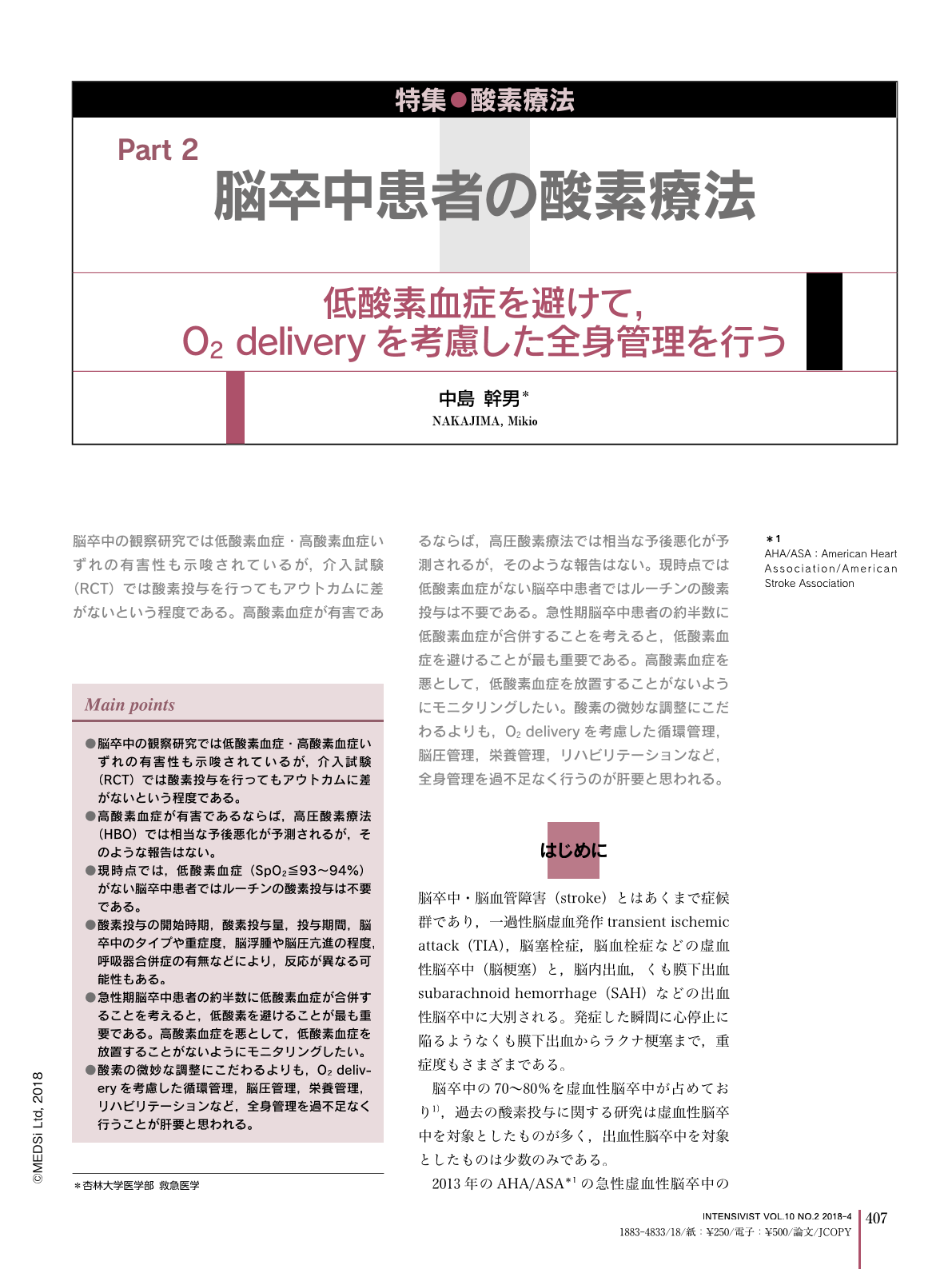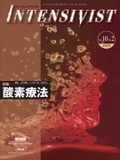Japanese
English
- 有料閲覧
- Abstract 文献概要
- 1ページ目 Look Inside
- 参考文献 Reference
脳卒中の観察研究では低酸素血症・高酸素血症いずれの有害性も示唆されているが,介入試験(RCT)では酸素投与を行ってもアウトカムに差がないという程度である。高酸素血症が有害であるならば,高圧酸素療法では相当な予後悪化が予測されるが,そのような報告はない。現時点では低酸素血症がない脳卒中患者ではルーチンの酸素投与は不要である。急性期脳卒中患者の約半数に低酸素血症が合併することを考えると,低酸素血症を避けることが最も重要である。高酸素血症を悪として,低酸素血症を放置することがないようにモニタリングしたい。酸素の微妙な調整にこだわるよりも,O2 deliveryを考慮した循環管理,脳圧管理,栄養管理,リハビリテーションなど,全身管理を過不足なく行うのが肝要と思われる。
Main points
●脳卒中の観察研究では低酸素血症・高酸素血症いずれの有害性も示唆されているが,介入試験(RCT)では酸素投与を行ってもアウトカムに差がないという程度である。
●高酸素血症が有害であるならば,高圧酸素療法(HBO)では相当な予後悪化が予測されるが,そのような報告はない。
●現時点では,低酸素血症(SpO2≦93〜94%)がない脳卒中患者ではルーチンの酸素投与は不要である。
●酸素投与の開始時期,酸素投与量,投与期間,脳卒中のタイプや重症度,脳浮腫や脳圧亢進の程度,呼吸器合併症の有無などにより,反応が異なる可能性もある。
●急性期脳卒中患者の約半数に低酸素血症が合併することを考えると,低酸素を避けることが最も重要である。高酸素血症を悪として,低酸素血症を放置することがないようにモニタリングしたい。
●酸素の微妙な調整にこだわるよりも,O2 deliveryを考慮した循環管理,脳圧管理,栄養管理,リハビリテーションなど,全身管理を過不足なく行うことが肝要と思われる。
Previous observational studies of patients after an acute stroke reported that hypoxemia and hyperoxemia were associated with worse clinical outcomes. Large randomized controlled trials also showed that oxygen supplementation did not reduce the rate of death or disabilities among nonhypoxic patients with an acute stroke. These findings do not support the routine use of oxygen for this patient population. Several studies suggest the effectiveness of hyperbaric oxygen therapy for patients with an acute stroke, but these results may contradict the idea that hyperoxemia is harmful. Hypoxemia may be found in more than half of the patients who suffer an acute stroke. For optimal oxygen delivery, hypoxemia should be treated, which is more important than adjusting the oxygen concentration to avoid hyperoxemia. The management of intracranial pressure, hemodynamic stability for optimal oxygen delivery, nutrition and physical rehabilitation may be more important for patients with an acute stroke.

Copyright © 2018, MEDICAL SCIENCES INTERNATIONAL, LTD. All rights reserved.


